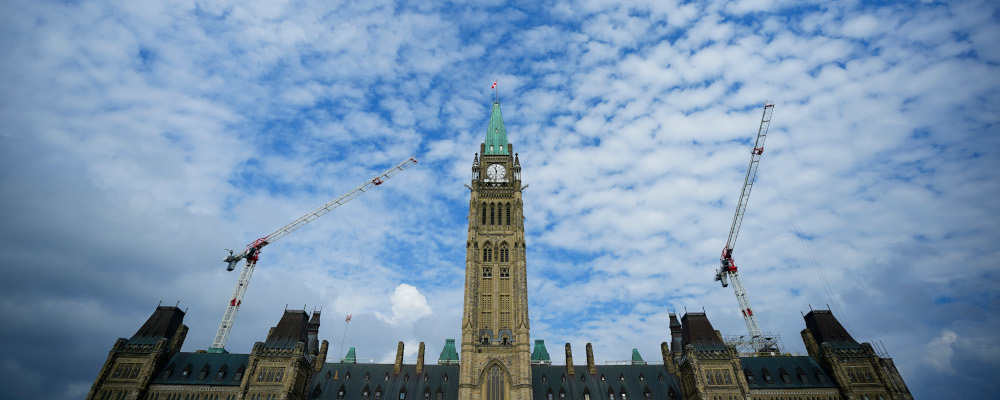Late last year, Gib van Ert, president of the Canadian Council on International Law and an authority on the application of international law in Canadian courts, and Prof. Amir Attaran of the Faculty of Law, University of Ottawa published a proposal in the Hill Times for a new law that would impose constraints on the use of section 33 of the Charter—the so-called “notwithstanding clause”—based on Canada’s international obligations. Their proposed “Notwithstanding Act” would oblige the federal cabinet to use its power to disallow a federal or provincial law (a power not used since World War II) every time a legislature uses section 33 to pass a law that either the federal cabinet or the Supreme Court of Canada concludes is inconsistent with an international treaty to which Canada is a party. The proposal recently attracted new attention in the wake of Saskatchewan’s decision to invoke section 33 to pass legislation saying that students under 16 must have parental consent to change their names or pronouns at school.
The Hub has invited Mr. van Ert and Howard Anglin, a regular contributor, to debate the merits of the proposed Notwithstanding Act. Yesterday, in Part 1, Mr. van Ert described and defended the proposed Act and Mr. Anglin responded with an initial critique. Today, in Part 2, Mr. van Ert and Mr. Anglin each offer two brief responses to the other’s arguments.
Gib van Ert:
Mr. Anglin asserts that the proposal Prof. Attaran and I have made would provoke a crisis of separatism in no fewer than three provinces. I can, of course, no more disprove this claim than Mr. Anglin can prove it. It does seem unlikely though, even in a country as enthralled by constitutional niceties as ours.
Mr. Anglin calls our proposal unconstitutional in the “profound and venerable sense”, as opposed to the actual one. Yet some might think that laws stripping unpopular minorities of fundamental rights are themselves unconstitutional in a profound and venerable way—even if seemingly permitted by section 33. Some might equally think that for Parliament to use its legislative power to require cabinet, in turn, to use its constitutional power to disallow the starkest rights abuses is, in a profound and venerable way, the re-introduction of constitutionalism in those rare cases where our legislatures abandon it.
International human rights are said to be too abstract. All rights talk is abstract. This is not an objection to international human rights but to human rights tout court. We had that debate forty years ago. Similarly, the notion that the Supreme Court of Canada should be spared intensely political disagreements about rights may have been wisdom in 1980. Today it is nostalgia.
As for fears the federal cabinet could misuse the Notwithstanding Act, an aggrieved province or person could challenge the law’s use in court. If the law were abused, the courts would say so.
Howard Anglin:
At the risk of oversimplification, but in the interest of brevity, much of this disagreement boils down to Mr. van Ert’s faith in judges and my faith in representative and responsible government. Call me old-fashioned (he does!), but I favour a system in which our ultimate political decision-makers are accountable, indirectly and constitutionally, to the people. Mr. van Ert says this is “nostalgia” because “[w]e had that debate forty years ago.”
He’s right. And the result was a constitutional compromise—insisted on by both PC and NDP premiers—that preserved the power of elected legislatures to legislate notwithstanding the opinions of five unelected ex-lawyers in Ottawa with no practical experience of governing, no special training in moral philosophy, and no monopoly on common sense.
Importantly, this does not make Canada an international outlier. It is still the general rule that courts do not nullify legislation in the United Kingdom, New Zealand, and Australia, and the general practice in most Scandinavian countries too. Section 33 is not an atavistic anomaly; it’s what keeps our constitution aligned with peer countries who are, like us, the best governed in the world.
So far our legislatures have exercised the power sparingly, but as courts have expanded the scope and intrusion of their oversight of government beyond anything the sceptical premiers or Pierre Trudeau himself anticipated in 1982, it has only become more relevant. With popular faith in democracy declining, now is hardly the time to arrogate more ultracrepidarian power to judges.
Gib van Ert:
Mr. Anglin’s rejoinder is admirable, and not only for deploying the term “ultracrepidarian”—a word my spellcheck knew but I did not. He is right that I trust courts more than legislatures to protect the rights of vulnerable minorities. Both the history of this country, and some recent and proposed invocations of section 33, support me in this.
Mr. Anglin is also right that judges have no special training in moral philosophy. Nor should they, for they are arbiters of law, not morals. Our proposed Notwithstanding Act does not invite judges to impose their personal moralities on the notwithstanding clause. It requires them to rule on whether a given use of section 33 is consistent with a rather low legal hurdle, namely the human rights conventions to which Canada’s leaders have bound the country from time to time since the Second World War. These treaties may well be regarded as moral imperatives. Maybe that is why we joined them. But they do not originate in the moralities and preferences of individual judges.
I will concede this much to Mr. Anglin: there are cases where Canadian judges seem to look to international law not as a guide through uncertain terrain but as a vehicle to reach some destination they have already decided upon. Judges who look at legal texts—whether international or domestic—and see in them only mirrors of themselves will frustrate any legislative reform.
The ultimate questions are: (1) Can section 33 ever be misused? I say yes. (2) Can such misuses be lawfully controlled? One hopes so. The Notwithstanding Act proposes a means of control that depends on neither constitutional amendment nor judicial imagination.

Howard Anglin:
I appreciate this concise summary, not least because I think it shows that we agree on where we disagree. I won’t rehash the merits (vel non) of judicial supremacy, except to say that when it comes to moral courage the record of judges in Western countries is something less than stellar, and not obviously better than that of legislatures. (Many such cases!)
And I share Mr. van Ert’s belief that Canada should generally live up to its treaty commitments, but if that is the real concern, why target uses of section 33, but not other laws that violate our treaty obligations, such as laws legalising drugs?
I also agree that international human rights instruments are intended to describe moral minimum standards. I just don’t believe that those standards are self-evident or self-executing, or that courts’ interpretations of their scope are the last word in anything but a narrowly legalistic sense. That is why, domestically, section 33 allows legislatures—the institutions directly responsible for the care of the community—to exercise independent practical reason in applying the Charter’s indeterminately stated provisions to specific circumstances. To the extent the Act would change this, it would be at least anti-constitutional, and, based on SCC warnings against “alter[ing] our constitutional architecture,” probably “actually” unconstitutional.
Which brings me back to my prudential objection. Canada is not even close to being an international human rights pariah in part because our constitution is already capable of preventing laws that would shock the conscience of the international community—”the starkest rights abuses” in Mr. van Ert’s words. This already includes disallowance, which doesn’t require new legislation. Why poke the separatist bear on the basis of a speculative fear of imagined horrors?




